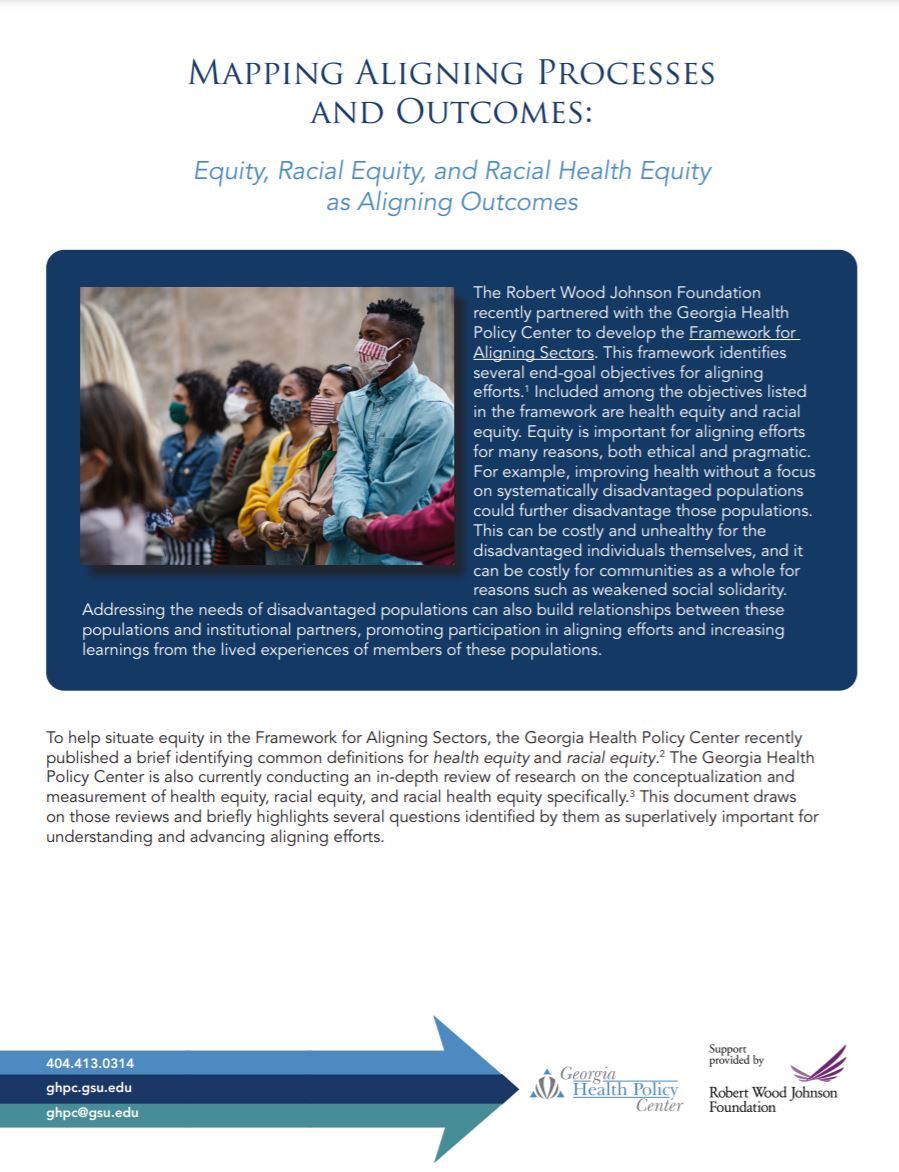
Mapping Aligning Processes and Outcomes: Equity, Racial Equity, and Racial Health Equity as Aligning Outcomes
This brief poses questions for researchers and practitioners to consider when developing a strategy for measuring health equity, racial equity, and racial health equity as outcomes of an aligning endeavor.
Equity is important for aligning efforts for many reasons, both ethical and pragmatic. For example, improving health without a focus on systematically disadvantaged populations could further disadvantage those populations. This can be costly and unhealthy for the disadvantaged individuals themselves, and it can be costly for communities as a whole for reasons such as weakened social solidarity. Addressing the needs of disadvantaged populations can also build relationships between these populations and institutional partners, promoting participation in aligning efforts and increasing learnings from the lived experiences of members of these populations.
Aligning Systems for Health: Health Care + Public Health + Social Services, supported by the Robert Wood Johnson Foundation and managed by the Georgia Health Policy Center, is focused on learning from stakeholders across the nation about effective ways to align these three sectors to better meet people’s goals and needs.
Screen reader support enabled.

 Back to Resources
Back to Resources